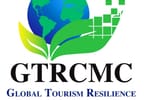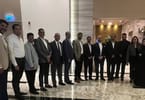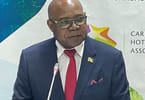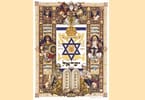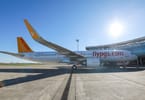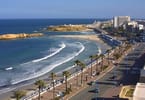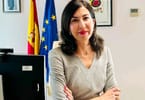His Royal Highness Prince Sultan bin Salman bin Abdulaziz Al Saud, (formerly the secretary general of the previously-called Supreme Commission for Tourism or SCT) now the chairman of the board of directors reporting directly to the King of Saudi Arabia, running the Saudi Arabia Commission for Tourism and Antiquities, has overseen the formation of a modern national tourism administration responsible for the planning, development, promotion and regulation of the tourism industry in Saudi Arabia.
He has demonstrated that his long-term ‘2020’ vision created to enhance the country’s tourism economy far exceeds the distance he has covered in his life as former fighter pilot and astronaut. The first Arab man ever sent into orbit, the prince carries the distinction of being a crew member of NASA’s Space Shuttle Discovery Mission 51G back in 1985. It’s obvious it did not surprise many how he pioneered tourism, established the SCT in line with the private sector’s initiative and the government’s drive to reduce dependence on oil while seeking other revenue sources such as tourism in Saudi Arabia.
Prince Sultan forges ahead with his five-year strategic plan making the industry experience a quantum leap forward. And with his new title, he embraces new and bigger responsibilities which according to him are quite a challenge.
Tasked to execute the heritage master plan involving the antiquities and museums sector, the commission has just been given a tighter grip on the heritage sector. A new law that transports over the next 11 months the authority over Saudi hotel accommodations to His Highness’ organization from the Ministry of Trade and Industry encompasses classification of all Kingdom hotels; the process will start in the next months beginning in the Medina area which has most hotels in the country. He will also introduce new accommodation type, small inns in the country-side or heritage hotels. “We are also doing major studies with international organizations to look into beautiful palaces in Saudi, to convert them or build around them major hotel accommodation,” he said.
Further, he is focused on ushering major programs for developing historic villages of Saudi Arabia. “This year, we’re already in the process of reviving them to match the idea of developing inns along the country side,” he added.
Saudi’s travel sector is getting a boost too. For the first time, tour operators and travel agents are being subject to some formal organization. Guides are getting licensed, 99 so far, with training ongoing for thousands of guides, tour operators and airport greeters. Taxi drivers, security staff and other tourism front-liners are given required training.
2008 happens to be the biggest year in the Kingdom’s investment sector. SCT will announce in less than 90 days a tourism investment prospective. “We’ve already bid out a first major mega destination on the Gulf which is about 300 kilometers away from Riyadh. The project is already in the hands of the economic council who confirmed that the King has already approved the Red Sea tourism master plan linking Saudi Arabia to other destinations on the Red Sea. What is amazing is that our new authorization and the new law allow us to have control over what happens at incredible sites and islands on the Red Sea. When the plan gets finally approved (expected this week) it will give us that layer which we need,” Prince Sultan added.
In essence, Saudi is not opening up to the world. On the contrary, Prince Sultan said he’s not introducing a new model, but rather is staying the course – the same model the Kingdom has had for the last 300 years. “Saudi Arabia is the land of Arabese, a land of culture, values and heritage. In the past years, we’ve already been an open country – some parts may have been inaccessible but not close. We have a huge push with King Abdullah leading a major transformation of the economy in different directions including tourism. We see tourism as a major creator of jobs,” he said.
Tourism will provide 1.5 to 2 million jobs opportunities and will design 141 million packages per year. “Human resources will need to reschedule work and be put up to speed. Thus we request specialized people. We are opening 45 centers for training for a period of more than 20 years. Along this line, our campaign will be covered through external and internal support,” he added.
In line with heritage promotion, the SCT stages this year a nationwide handicraft industry fair, as well as SMME launches for creating smart-jobs and en-masse training program for human development. “We’ve created such for hotel brands like Accor now building in Saudi. We are graduating people in special courses to ‘Saudiaze’ the accommodation and the travel sectors. Scholarships for our men and women for training overseas with other SCT partners have been granted,” said the prince.
Saudi is witnessing an incredible transformation in science and technology. New economic cities like the seven big cities on board today were built from scratch. “My mandate is to put tourism central to the economy, our society, our people. We have to introduce tourism to Saudi Arabia not as a negative element. Other countries in Europe for instance keep a watchful eye on tourism impact. Having said that, our market is really the local market,” he said alluding to a huge demand generated by a local market now focused on good quality tourism.
This is SCT’s first captive market – the Saudi market numbering almost 5 million travelling outbound, who go to the Emirates or the Gulf states instead. They are well-paying tourists who spend about $ 15 B only in the summer. Prince Sultan said they’d rather keep the money in the country by redefining mid-year vacations in Saudi Arabia and civil service schedules allowing Saudis shorter holidays to take families around the country to re-energize.
SCT has also made a push for the events program, creating a rich tourism calendar with companies coming together growing national activities to 100 events, launching 15 signature events that have never existed before in 2008. Next year, there will be more with the commission seeding money to launch events in Saudi.
Time-share has also increased to 15 companies. Internal tour operator licensing that never existed will be increased. In a couple of years, this unleashed wealth which has been pent up in the sector will see incredible earnings.
In an environment that is open and extremely welcoming investment-speaking, Prince Sultan said he’s looking for the biggest, fully-fledged tourism projects to develop. Such as Ageir which already had investors from the Emirates and currently is bidding and negotiating with developers recently short-listed. “We’re promoting heritage and culture sites and investments in smaller rural areas that effectively cannot start on their own. We don’t have restrictions on investments and partnerships. We would like to see investments with local partnerships. We want to promote this sector than imply that we don’t legally don’t do it,” he said.
Asked if he is counting on US investments, he cracked, “Do the American investors come with money? We don’t have any problems at all if they do, as they do with science and education sectors. But we expect tourism investors. American tourists come in small numbers, usually of high quality and well-paying consumers of around 9000-1000. The US market will be targeted for our Umrah Plus – good for American Muslims who enter the country for pilgrimage but may want to stay on for some sightseeing,” closed Prince Sultan bin Salman at the Arabian Hotel Investment Conference held recently in Dubai, United Arab Emirates.
WHAT TO TAKE AWAY FROM THIS ARTICLE:
- His Royal Highness Prince Sultan bin Salman bin Abdulaziz Al Saud, (formerly the secretary general of the previously-called Supreme Commission for Tourism or SCT) now the chairman of the board of directors reporting directly to the King of Saudi Arabia, running the Saudi Arabia Commission for Tourism and Antiquities, has overseen the formation of a modern national tourism administration responsible for the planning, development, promotion and regulation of the tourism industry in Saudi Arabia.
- The project is already in the hands of the economic council who confirmed that the King has already approved the Red Sea tourism master plan linking Saudi Arabia to other destinations on the Red Sea.
- It's obvious it did not surprise many how he pioneered tourism, established the SCT in line with the private sector's initiative and the government's drive to reduce dependence on oil while seeking other revenue sources such as tourism in Saudi Arabia.



